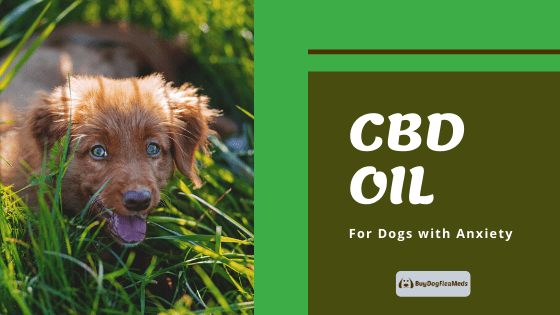Can CBD Oil for Dogs & Cats help with Anxiety?
Have you ever came home to a destroyed sofa or any cushions and an obviously upset pet? It’s really hard to recognize what is going on inside our pets’ minds. It could be they fear something or feeling anxious for an unknown reason.
What is Anxiety
Anxiety is one of the common contributing factors to behavior problems in dogs and cats. Since they couldn’t speak, it is understandable that they express their feelings in different ways like destruction, vocalization, aggression, and house soiling. They could possibly feel this way when they are away or separated from you, when they are riding in an enclosed vehicle, when they see strangers (either people or other animals), or when they hear flashes of lightning, thunderstorms, fireworks, or any scary and unusual loud noises. There are so many reasons that could scare your pet, make them upset, or make them feel anxious, and the most important thing is your patience and understanding. Don’t get mad at them, instead try to sympathize with them, get professional help, and walk this journey with them.
Different types of anxiety
Like in humans, there are also different types of anxiety for our pets. Identifying which type will help you manage your pet’s behavior and you’ll learn the triggers and how to avoid them. Below are the different types of anxiety that you may encounter with your pets:
- Separation anxiety – If your pets seem fine and behaved well when you are around but whenever you return home from work, you noticed that some of your furniture has been chewed by your dog or the foam inside your sofa was destroyed and scattered in the flooring, or you found that your cat eliminated outside the litter box, you have to know that your pet exhibit distress whenever they are being left alone, and there’s nothing that calms their nerves than to see you or any of your family members home. This is a clear sign of separation anxiety.
- Anxiety in former shelter dogs or cats – This is more common in dogs. You have to understand before adopting pets from a shelter, that an animal, like humans, remember things. They remember when they were left alone by their original owners, they remember how long they were alone in a shelter, they remember every cruelty they had experienced, and the pain or the scars in their hearts will always be there. These pets love being cared so much, they never want to be alone again, so they are also prone to separation anxiety, and sometimes, if you are trying to adopt them, they will be anxious about how you are going to treat them, so you need to build the trust between the two of you.
- Fear-related anxiety – This can be caused by loud, unusual, and scary noises, strange people or animals, an environment that is new to them, car rides, or situations like when you’re in a vet’s clinic.
- Age-related anxiety – This type of anxiety affects older pets and can be associated with cognitive dysfunction syndrome or CDS. This is very similar to an early onset of Alzheimer’s disease in humans, where their memories, skills or learnings, perception, and awareness start to decline. It leads to confusion and anxiety in senior dogs.
How to prevent anxiety in dogs and cats?
- Ignoring your pet more often whenever he follows you to every corner of your house is a good kind of therapy for their separation anxiety to lessen or completely healed, of course, do not ever forget to acknowledge their presence. You have to understand that when they get used to your attention, it will be so hard for them to deal with the loneliness whenever you’re not around, hence, the anxiety.
- Avoid making it obvious to your pet that you or anyone from your home is leaving. Remember, your pets are capable of remembering things and your gestures before leaving the house will make them think that next time you do the same, it would only mean that you are leaving again.
- Before leaving the house, put them somewhere with toys that could make them busy to avoid an emotional breakdown. Don’t let your pet follow you to the door.
- Create a safe place to limit your pet’s ability to be destructive while you are away. A well-lit surroundings, small room, with windows, will do, then fill the room with your pet’s favorite toys.
- Whenever you are leaving the house, feed your pet with a special treat so he or she will surely look forward to that time of the day where they can eat a special treat.
- Try to keep the noise levels in your house the same.
- Ask your vet about a dog-appeasing pheromone diffuser or a cat-appeasing pheromone diffuser. The scent will definitely calm your pet. They come in various forms including sprays, plug-ins, wipes, and collars.
Symptoms of Anxiety in Dogs
- Pacing
- Panting
- Attempting to hide
- Lack of appetite
- Being too distracted for you to get their attention
- Drooling
- Yawning
- Restlessness
- Aggression
- Urinating or defecating in the house
- Destructive behavior (like furniture chewing or scratching)
- Depression
- Excessive barking
- Repetitive or compulsive behaviors
- In extreme cases, incontinence
Symptoms of Anxiety in Cats
- Destructive behaviors like furniture scratching and clawing at curtains
- Failing to use the litter tray
- Change in mood
- Hiding
- Aggression
- An increase in vocalization (excessive meowing)
- A change in appetite or weight
- Following people around the house
- Increased lethargy
- Vomiting
Natural Home Remedies for Dogs and Cats Anxiety
At times, signs of anxiety in our pets could be an indication of other illnesses or visit your vet to ensure that there are no serious health problems that might trigger their anxiety. Here are the home remedies that can help your pets from their anxiety attacks.
- Calming scents and essential oils– as mentioned earlier, there are calming scents that are designed for dogs and there are also made for cats. This comes in the form of sprays, diffusers, and plug-ins.
- Desensitize your pet so he will no longer feel anxious as you come and go.
- Allowing your pet to see out the window when you’re not home.
- Give toys to keep them busy
- Change your behavior and habits that could worsen your pet’s separation anxiety. Also, no cuddling of pets because it may give them a feeling or impression that they are being rewarded when they are anxious.
- Herbs – Herbs like chamomile is a powerful sedative, it can help your pet relax. Valerian is also an herbal sedative, it promotes physical relaxation, this is recommended if your pet gets nervous on a car ride. St. John’s wort is an anti-depressant herb and is commonly used for fear-based anxiety. There are so many calming herbs that you can try and check which will be the most effective for your pets in different situations.
- Cannabidiol CBD Oil – Some pet owners have reported success in using CBD oil to treat dogs and cats’ anxiety. CBD is a compound found in cannabis. Manufacturers use carbon dioxide or a solvent like olive oil to extract CBD oil from the plant. It doesn’t contain tetrahydrocannabinol or THC, a compound also found in cannabis and is notorious to make someone “high”. On the other hand, CBD doesn’t cause any mind-altering effects. Even though the research on CBD oil among cats and dogs is still on its early stage, the results are appealing and promising. For pets, it is known to relieve anxiety, treat diabetes, reduce pain and inflammation.
Benefits of CBD for Pets
- It helps ease chronic pain and inflammation.
- It helps with anxiety by calming the pets and boosting mood.
- CBD reduces a series of seizures.
- CBD can reduce nausea caused by certain medications.
- CBD has the potential to prevent cancer cell growth.
- Skin and fur problems like itchiness and dryness can be treated by CBD. CBD can also be used as your pet’s beauty regimen as it makes the coat look healthier.
- CBD helps improve appetite
How much CBD should be given to dogs and cats with anxiety?
Since CBD is a newer therapy, there is no official dosage given yet. You have to be careful when it comes to administering this product as overdosage comes with serious side-effects. The general guideline is to provide your pet with 0.2mg of CBD for every 1 pound of their body weight.
View my CBD Dosing chart for pets for more information.
CBD is generally safe and effective in the treatment of your pet’s diseases and it is very beneficial to health. It is suggested to talk to your vet about switching to CBD treatment for the most suitable and proper advice.
References:
- https://www.sciencedirect.com/science/article/pii/S1558787816300569
- https://www.ncbi.nlm.nih.gov/pmc/articles/PMC6161644/
- https://www.ncbi.nlm.nih.gov/pmc/articles/PMC2241751/
- https://www.petmd.com/dog/conditions/neurological/c_dg_cognitive_dysfunction_syndrome
cancerfrom either hemp dog Anxiety natural home remedies
click hereTHC (CBD’s
cbd cat treats
honest paws coupons
holistapet cbd oil reviews
best cbd oil for dogs

